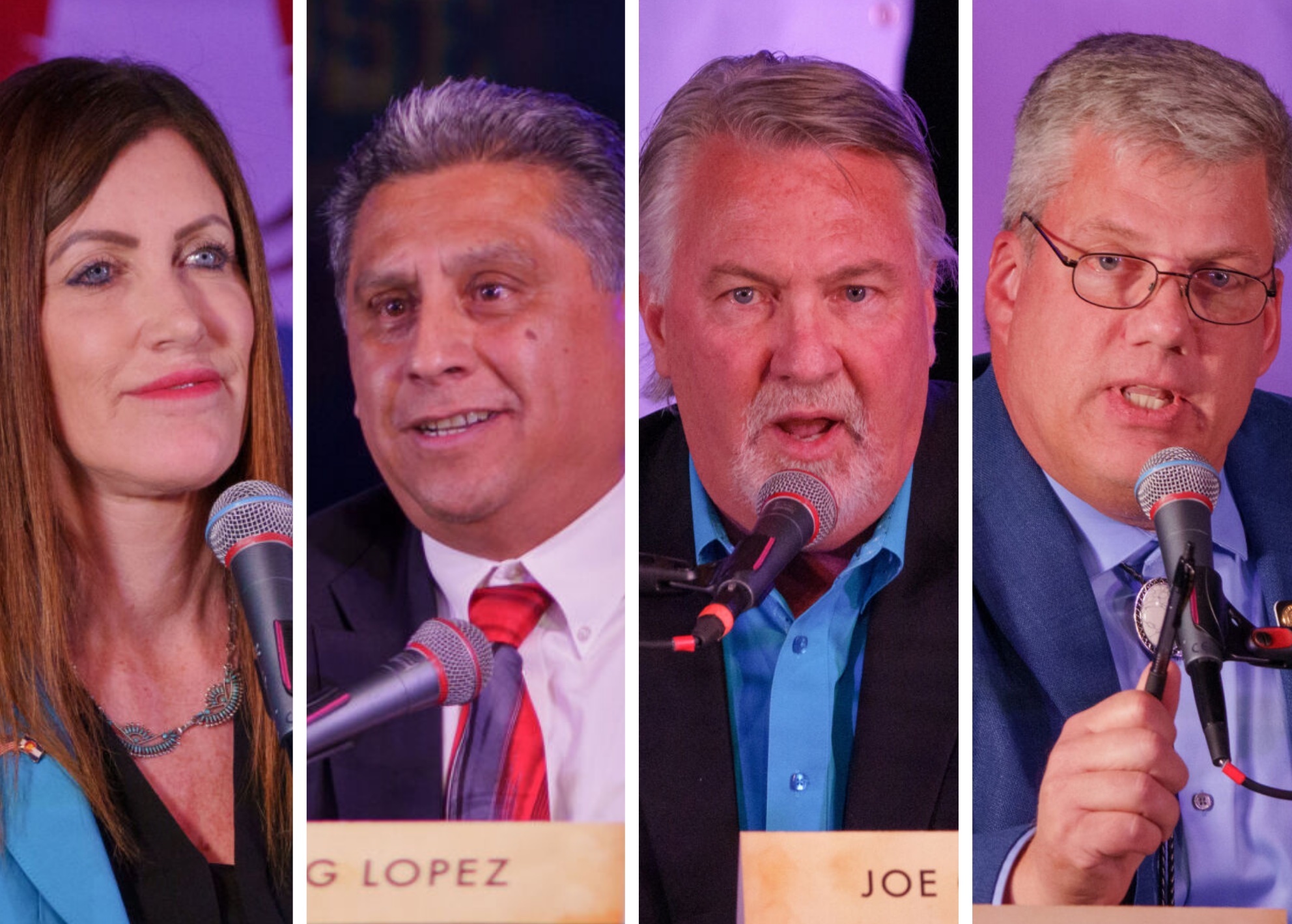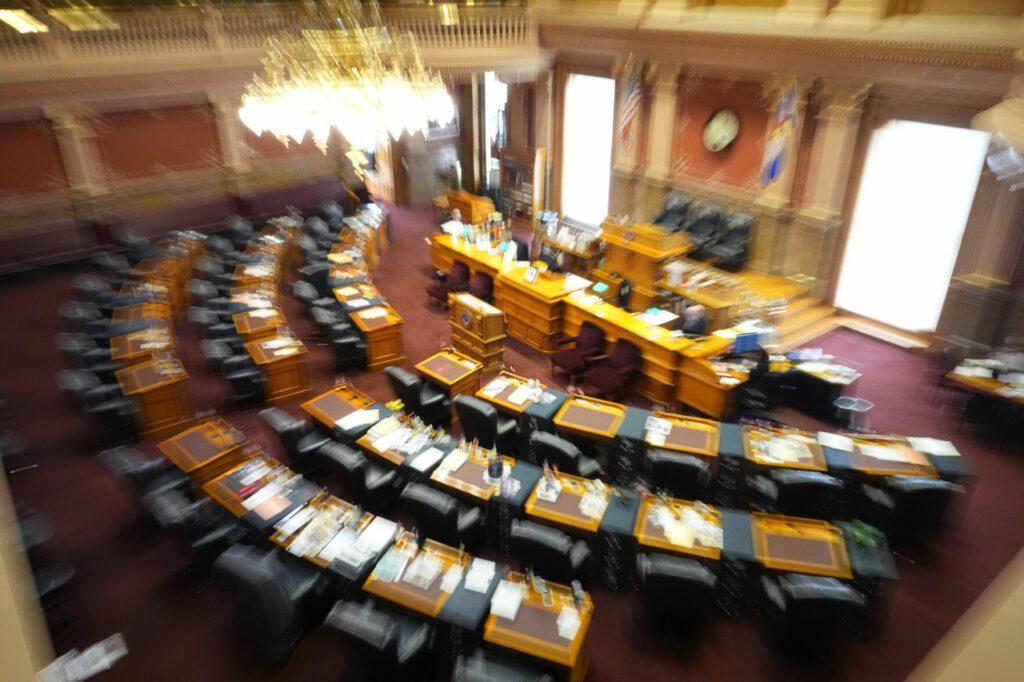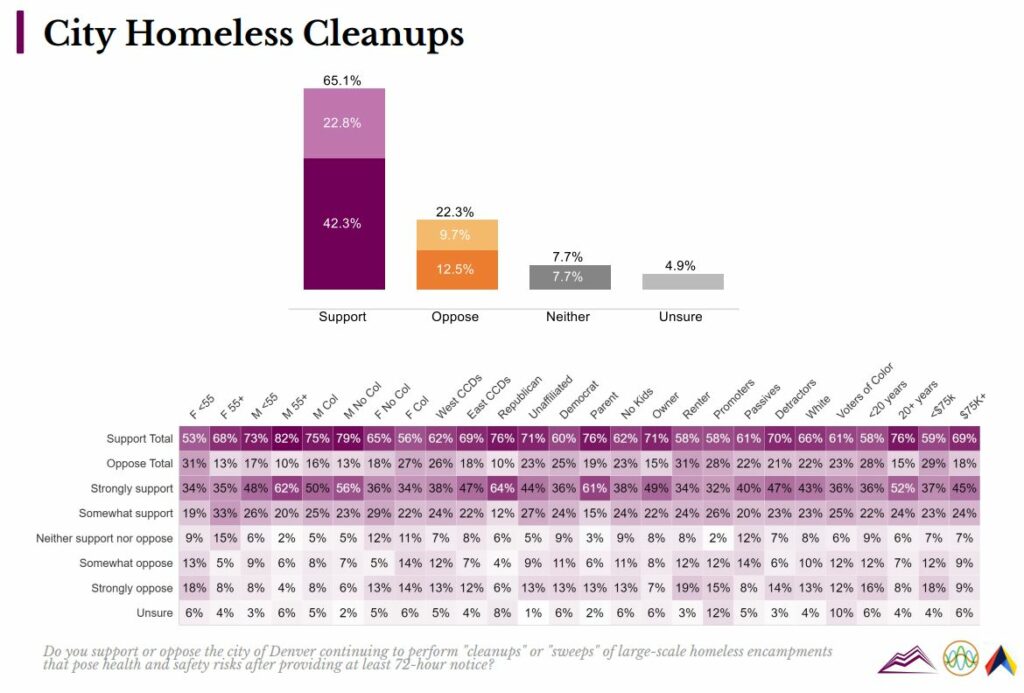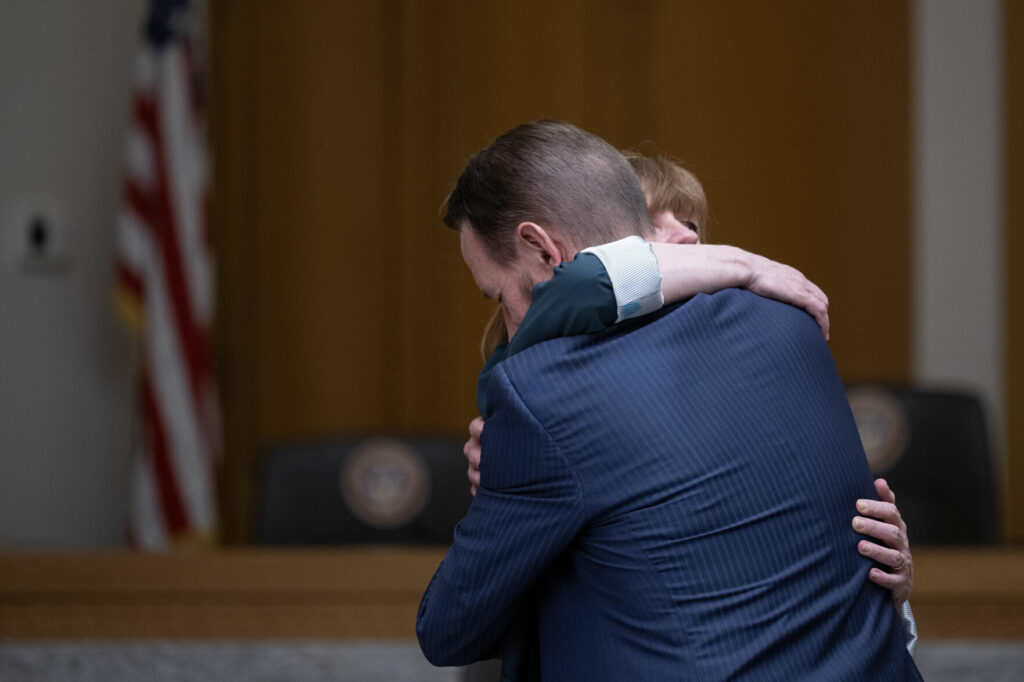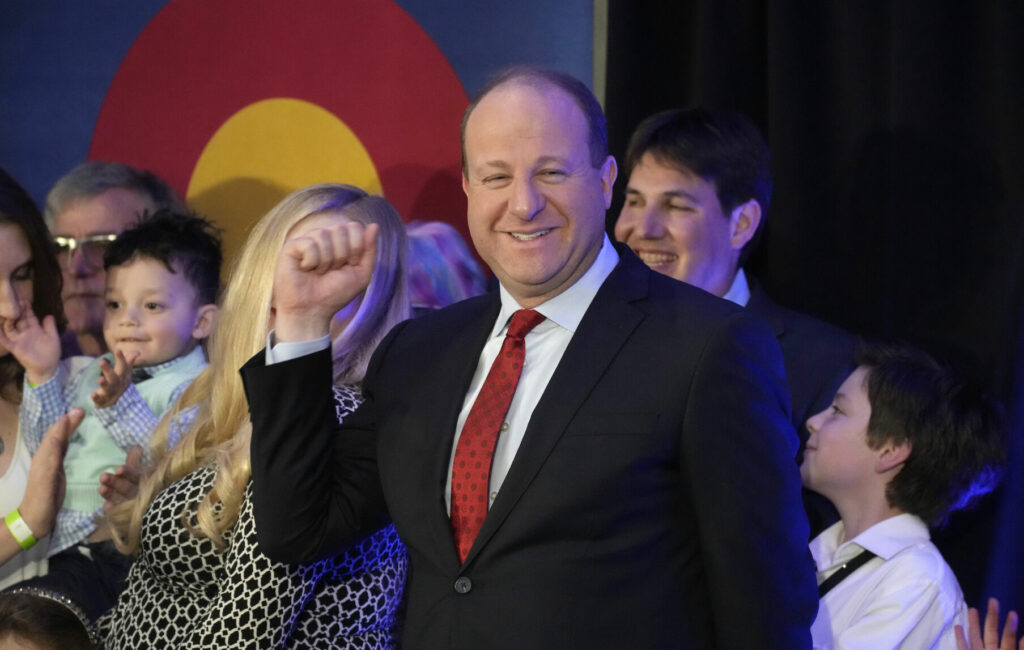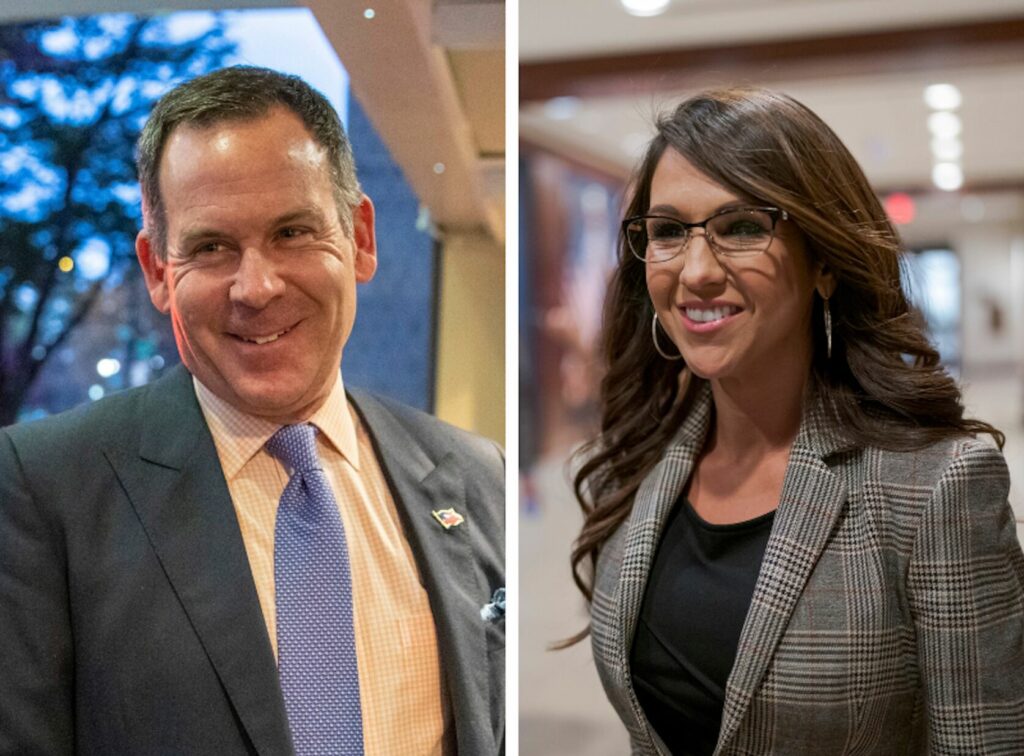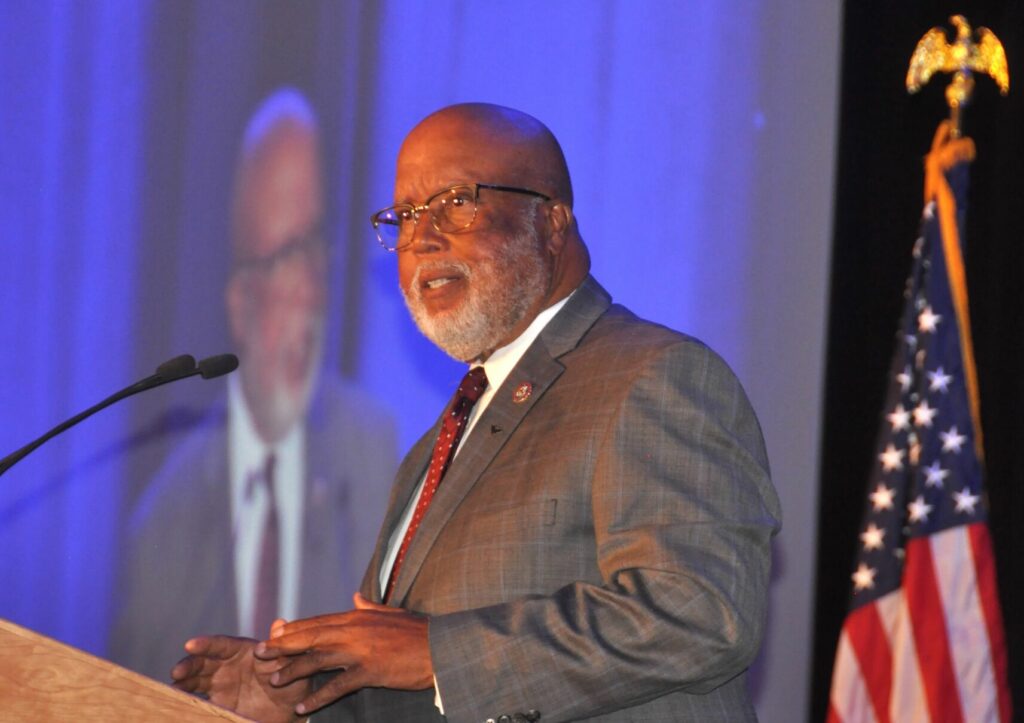TRAIL MIX | Questions to ponder as voters cast ballots in Colorado’s primary election
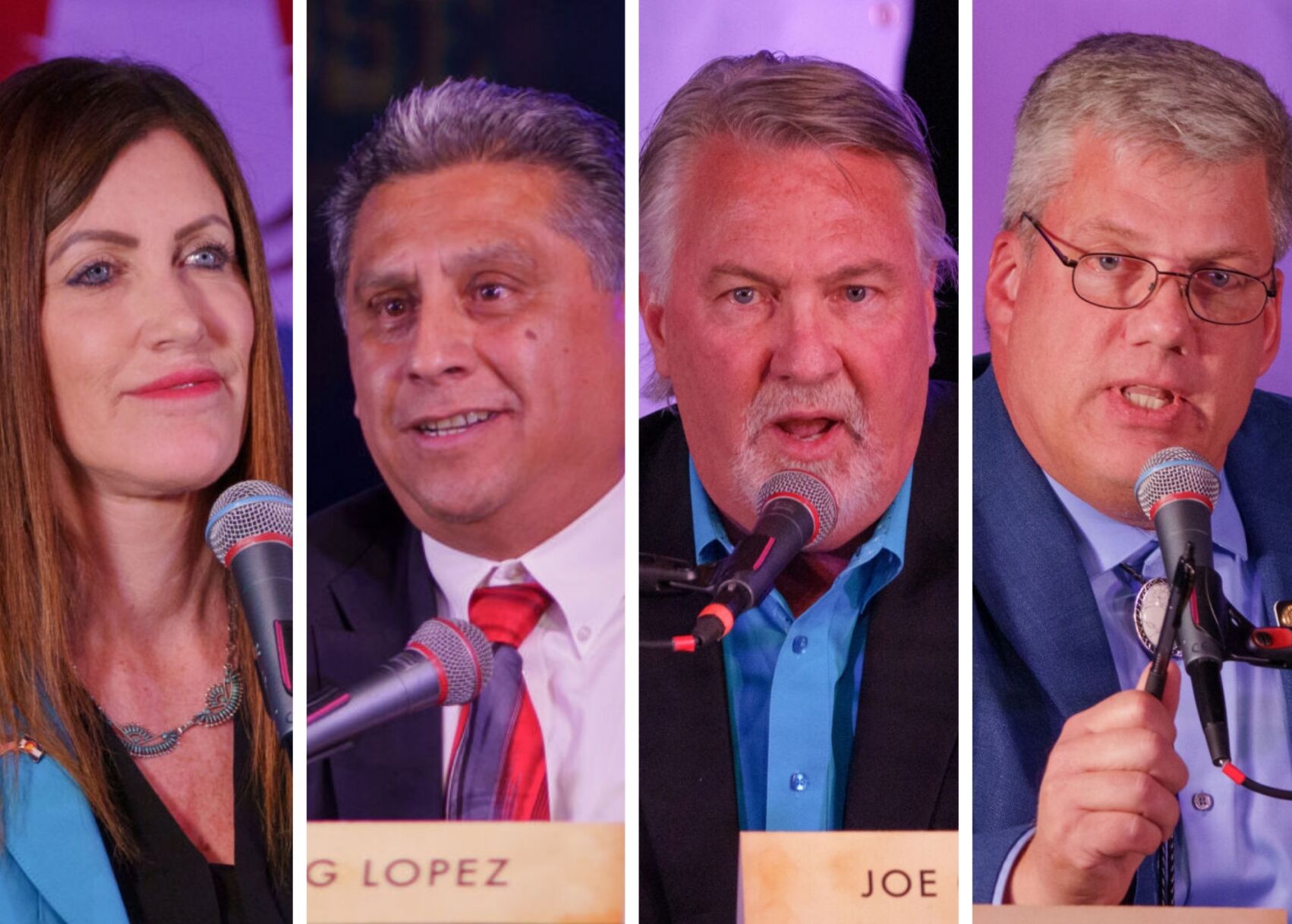
There are more questions than usual heading into this month’s primary election in Colorado.
Several factors are colliding to make this one of the most unusual – and least predictable – Colorado primary seasons in memory.
All of the action at the top of the ticket is on the Republican side this time around, though Democrats have their share of contested primaries further down the ballot.
That’s because Democratic incumbents are seeking reelection without opposition for the leading statewide races – governor, U.S. senator, attorney general, secretary of state and state treasurer – at the same time the party coalesced early around nominees in the two open congressional districts, while Republicans have teed up what appear to be roughly evenly matched primaries in all but a couple of those races.
Mail ballots start going out to most Colorado voters on June 6, and they’re due back by 7 p.m. June 28.
Voters will be faced with one of the least-crowded primary ballots in years – just seven candidates, all Republicans, are running in contested statewide primaries for major office this year, compared to 15 candidates from both parties who competed in 2018’s contested primaries, without a U.S. Senate race on Colorado’s ballot.
On the Democratic side, Gov. Jared Polis, U.S. Sen. Michael Bennet, Attorney General Phil Weiser, Secretary of State Jena Griswold and State Treasurer Dave Young have all been able to cruise to the November ballot, while state Sen. Brittany Pettersen and state Rep. Yadira Caraveo have been able to conserve their funds and avoid some of the difficulties candidates can encounter in primaries in their bids to represent the 7th and 8th congressional districts, respectively.
It’s a different story in the Republican races for the same offices, with only a couple of the GOP nominees already set – attorney general candidate John Kellner and state treasurer candidate Lang Sias.
Republicans running in primaries include gubernatorial candidates Greg Lopez and Heidi Ganahl, U.S. Senate candidates Ron Hanks and Joe O’Dea, secretary of state candidates Tina Peters, Pam Anderson and Mike O’Donnell, and crowded races in the two open congressional districts. In the 7th CD, Erik Aadland, Tim Reichert and Laurel Imer are running, and in the 8th CD, it’s Lori Saine, Jan Kulmann, Tyler Allcorn and Barb Kirkmeyer.
It’ll be up to voters in the Republican primaries – including an unknown number of unaffiliated voters, who can cast ballots in either major party’s primary – to choose not only which candidates the GOP advances to the general election but also which direction the state’s Republican Party takes, to hear strategists and pundits tell it.
The choices between more traditional Republicans and their Trumpified counterparts has rarely been this plain, with Ganahl, O’Dea and Anderson occupying the former position and Lopez, Hanks and Peters proudly waving the MAGA flag. In the congressional races, Imer and Saine embrace the Trump mantle, though the distinction isn’t as firm in the more crowded fields.
Even though Democrats have romped at the polls in recent elections, Colorado is still considered up-for-grabs in the right climate, and the Biden midterms appear to be providing the kind of wind at their backs that Republicans have been praying for.
By nearly every harbinger, this November should be a reckoning for the state’s ruling Democrats, who hold every statewide executive position, both U.S. Senate seats, a majority of the U.S. House seats and majorities in both chambers of the General Assembly.
It’s a midterm election, which should spell losses for the party that occupies the White House, and voters are by all appearances as frustrated and angry as they’ve been in years over rampant inflation, a rising crime rate and the lingering effects of the two-year-old pandemic. It’s a recipe for swing voters to decide to throw the bums out, which isn’t good news for Democrats, since they’re the party in charge.
This year’s election could finally answer the question whether Colorado has tipped over into reliably blue territory or – as the state’s Republicans have been contending for years – if former President Donald Trump’s presence on the ballot and in the White House skewed results in a state whose voters disliked Trump enough to take it out on his fellow Republican candidates.
Election forecasters peg Polis as safe and call the Senate race Bennet’s to lose, but statewide down-ballot races – for attorney general, secretary of state and state treasurer – could give restless voters a chance to split their tickets. National groups are already pouring millions of dollars into the two open congressional seats, and both parties agree that control of the state Senate, where Democrats currently hold a 20-15 majority, will be in play, particularly in the first election after redistricting.
The number of Colorado voters who have opted to skip their mail ballots and vote at vote centers and county clerks’ offices has been vanishingly small in recent elections, but since several of the leading Republican candidates have been disparaging mail balloting – Peters, for instance, says she wants to return the state to in-person voting, linking mail ballots to unsubstantiated claims of voter fraud – will more of their adherents vote in person than in the last election?
While the GOP’s state central committee shot the proposal down by a wide margin, a vocal contingent of Republicans made clear for the second time last year that they don’t want voters who aren’t registered Republicans to have a say in which candidates the party nominates. Will unaffiliated voters remember that, or will they flock to vote in the Republican primary, since there aren’t many choices if they vote the Democrats’ ballot?
Will the 3rd Congressional District’s Republican primary see more voters than usual, as unaffiliated voters who typically vote in the Democratic primary – along what appear to be a couple thousand Democrats who switched their registration to unaffiliated so they can vote in the GOP primary – throw their votes to U.S. Rep. Lauren Boebert’s primary challenger, state Sen. Don Coram?
For months, there’s been an effort organized by some of Boebert’s detractors to encourage 3rd CD voters who feels strongly about making Boebert a one-term congresswoman to try to oust her in the Republican primary, since the district was redrawn to favor Republicans by a few more points than it did in the last election, when she defeated the Democratic nominee by a little over 6 points.
Most Democrats – including the three candidates vying for the chance to challenge Boebert in November – have discouraged such talk, contending that the right candidate running the right campaign can buck the year’s red tide and defeat the incumbent, though everyone agrees it’s an uphill climb.
It’s an open question, too, whether Trump will bestow endorsements on any candidates in Colorado beyond Beobert, who won his stamp of approval months ago.
The scuttlebutt out of Mar-a-Lago suggests Trump could be less inclined to dispense endorsements after the shellacking he suffered in Georgia’s primary a couple weeks ago, when his favored candidates in high-profile races went down by wide margins, but tea-leaf readers are also predicting that Trump might want some wins so could endorse Peters or Hanks – or both – if it looks like his nod would tilt their primaries.
In addition, the Supreme Court’s leaked draft opinion overturning Roe v. Wade has already thrust abortion into the spotlight in some primaries – in the Senate primary in particular, with Hanks hammering O’Dea’s position that he supports Roe – but if the court’s final opinion is released before the primary, it could motivate voters who are less avid about politics by placing the issue front-and-center as they’re filling out their ballots.
